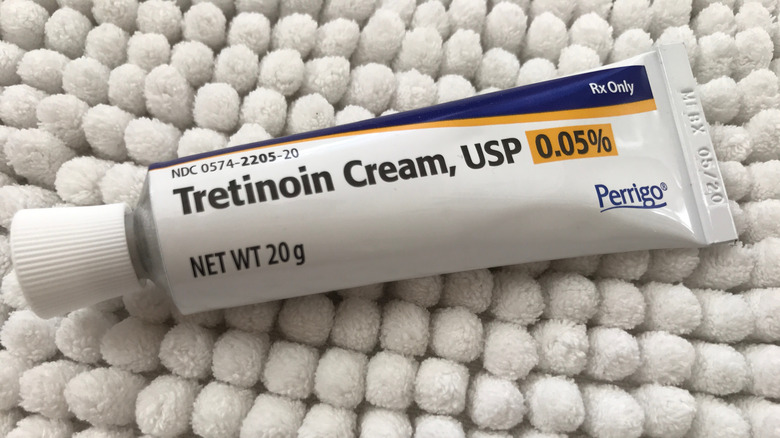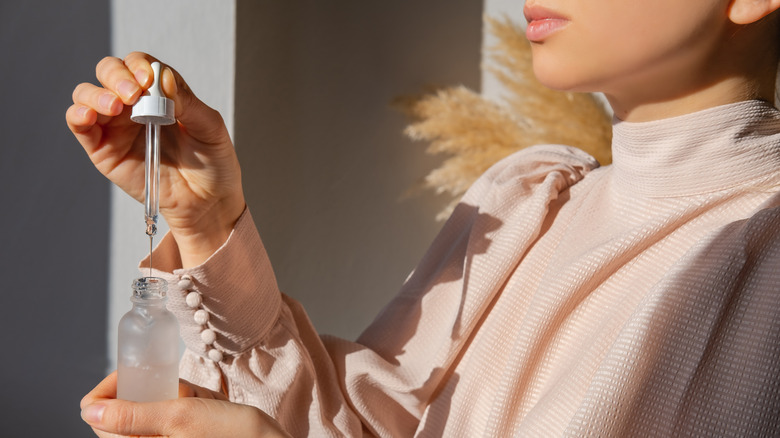Tretinoin Vs. Retinol: What's The Difference?
Whether you're a skincare junkie or a total novice, you may have come across powerhouse retinoids like tretinoin and retinol. It's hard not to hear these names dropped everywhere, especially when celebrities unveil them as one of their top skincare secrets for maintaining a glowing complexion.
So, when it comes down to it, which product should you be using, and how easy is it to actually get? While they may sound similar, the two work in distinct ways to target different facial issues. Even though they are both made from vitamin A, they have different levels of accessibility, as tretinoin is a medication that requires a prescription. At the same time, many kinds of retinol can be purchased over the counter depending on its strength (via Healthline).
Instead of feeling stuck between figuring out which one is better to address acne or aging concerns, keep reading to learn what can make these products essential to your skincare routine.
Tretinoin is key in clearing pores, while retinol can boost collagen
Known as a top dermatologist pick for treating stubborn acne, tretinoin (a.k.a. Retin-A) can be a game-changer. If you suffer from blackheads or whiteheads, it helps get rid of dead skin cells that can clog up congested pores and cause these issues (via Byrdie). To do this, tretinoin uses synthetic vitamin A to help cells make way for softer skin and stimulate collagen in the skin so that wrinkles are less noticeable (via American Society of Plastic Surgeons). What makes tretinoin different from retinol is that it turns into retinoic acid when applied to the skin, making it possible to deliver effective results quickly (via Derm Avenue).
On the other hand, retinol is derived from vitamin A naturally and is used mainly to target wrinkles and signs of aging, explains Verywell Health. The website notes that for retinol to achieve results, it needs to turn into retinoic acid, but this happens slowly and can take months to work its magic. Per Healthline, it works deep beneath the skin to stimulate collagen, creating a plumper appearance and lightly exfoliating to achieve a smoother texture. Like tretinoin, retinol can be harsh and irritate the skin leaving it red because it can be drying (via Hers).
While trying retinoids may seem scary, with the right sunscreen in hand to protect against sun sensitivity, it's possible to have your best skin yet.

